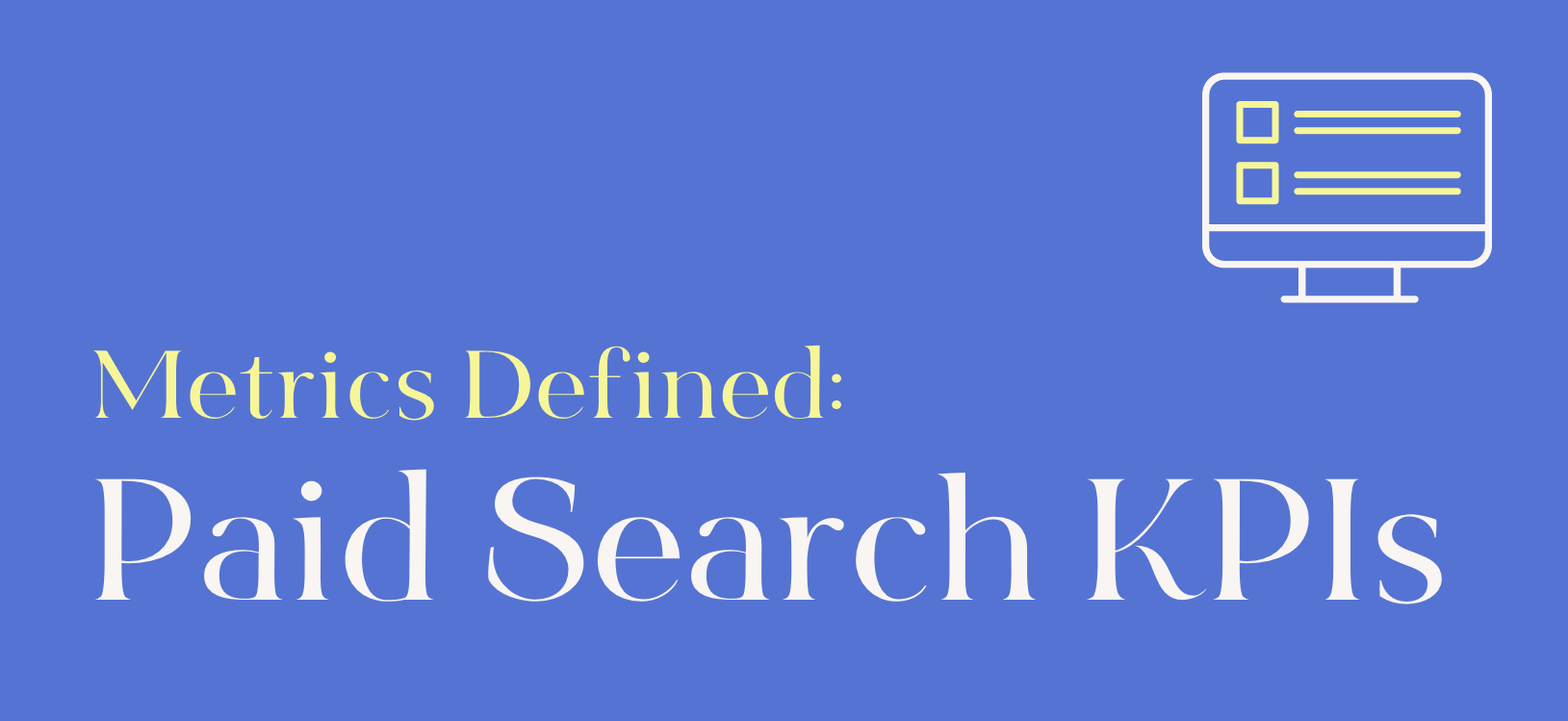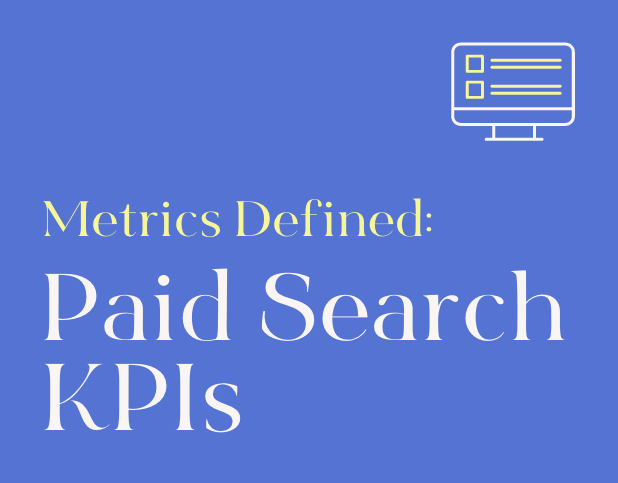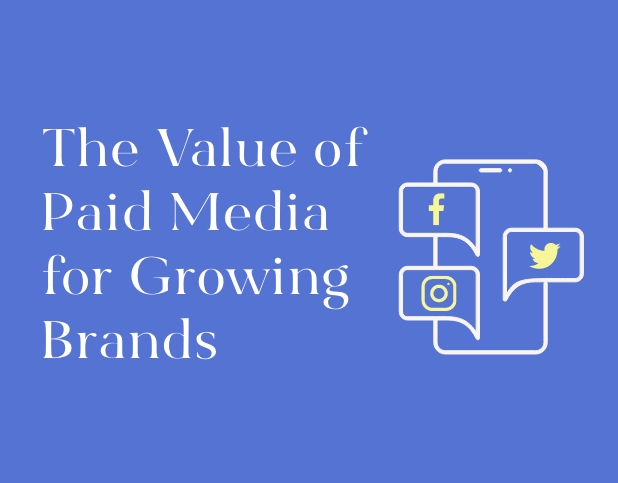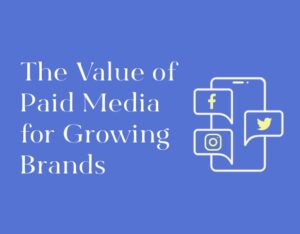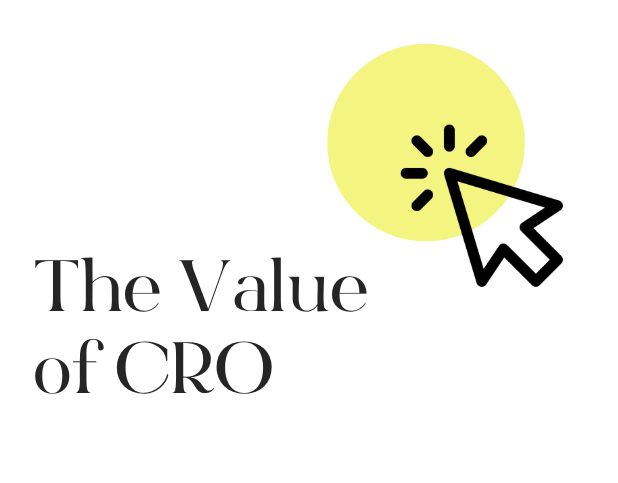What used to be known as Google AdWords, now simply Google Ads, is an advertising service for brands that want their ads to appear in Google search results and the Google advertising network. Google Ads is one of the most universally effective methods of digital advertising no matter your industry and one of the easiest entry points into paid digital advertising. As with many Google Tools, Google consistently improves the platform and functionality of these ads to make them as easy to use and effective as possible. There is also an intuitive backend platform to make it easy to set up your campaigns and look into the results. With all marketing efforts, taking the time to look at and understand your campaign performance is just as important as the initial strategy.
We believe in constantly testing and learning. Most marketing initiatives need to be refreshed and updated on a consistent basis, including paid social ads, display ads, and even billboards. While Google search ads aren’t visual, there are still opportunities to refresh and update keywords and targeting for your campaigns. Consistently taking the time to understand what’s working and what’s not will significantly impact the success of your campaigns. If you set it and forget it, your campaign is likely to fail because user behavior, seasonality, and industry trends heavily affect marketing campaigns.
At BuzzShift, we take a full-funnel approach to digital strategy. Google Search Ads are an impactful way to reach customers throughout multiple stages of the customer journey, including the awareness, consideration, and conversion stages. Your campaign strategy and the way you will measure success will be heavily based on your goals and which stage you plan to focus on. Let’s walk through the key measures of success for your paid search campaigns. If you’ve read our blog about Paid Social KPIs, you’ll see many similarities in these measurements.
If Your Goal is Awareness & Consideration:
In the awareness stage, your target audience is likely completely unaware your brand exists and your primary goal is to get the word out. In the consideration stage, your target audience is aware of your brand, but still exploring their options and potentially researching your competitors. In these stages, you would focus your investment on non-branded and competitor keywords. There are 3 main KPIs you will look at to measure the success and effectiveness of your awareness and consideration campaigns:
# of Clicks: The number of times a user clicks on your ad. This measure can be used as an indicator to determine whether or not users find your ad content appealing. It may also be connected to a low number of impressions which may tell you your investment levels are not competitive enough.
Clickthrough Rate (CTR): the ratio of how often people see your ad and decide to click it. The CTR can be used to gauge if your content is working and what can be improved.
Average Cost-Per-Click (Avg. CPC): the average amount that your account has been charged for each click on your ad. This metric is important because it will determine the financial success of your paid search campaigns.
If Your Goal is Conversion:
In the conversion stage, your target audience is aware of your brand and ready to make a purchase decision. In this stage, all of the keyword categories are important, but your focus and budget allocation should be based on how established your brand is. Let’s look at how to measure the success of your paid search conversion campaigns.
Clickthrough Rate (CTR): We mentioned above the definition and use case for CTR, but how is a CTR measured differently when conversion is your goal? To put it simply, the higher the better. Higher CTRs lead to higher conversion rates.
Conversion Rate (CVR): This is the percentage of users that saw your ad and took the desired action. If you are conversion-focused, it is obvious that the conversion rate will be an important metric. This rate is an effective way to compare the performance of different campaigns. Some things that affect conversion rates are relevance, clarity, and value.
# of Conversions: The number of times a user completes the desired action, including making a purchase, capturing a lead, etc. By tracking which conversions were a direct result of your ad, you will have a better understanding of if your ads are working and if other channels are yielding more or fewer conversions.
Return On Ad Spend (ROAS): the amount of revenue earned for each dollar spent on a campaign. This metric helps your business evaluate the effectiveness of a campaign, understand how a paid ad is driving sales, and if it is worth the investment.
Lifetime Value (LTV): the total revenue a customer may offer through their period of time as a customer. This is the primary metric for understanding your customers and your business’s financial viability.
We hope this helped you on your journey to developing a more effective paid search strategy. If your digital strategy includes more than just paid search, don’t stop here! Take a look at a few of our other blogs outlining how to measure the success of your Paid Social Ads, Website Performance, Organic Social Media, and Lead Gen efforts. These outline the top key performance indicators marketing professionals use to measure the success of their full digital strategy. We are here to help make the most out of the time and effort you put into your marketing. If the reports look like they’re in another language or you need any guidance on building out a more holistic digital strategy, we would love to help! Reach out today and our Business Development team will set up some time to chat so we can learn more about your brand goals!
About BuzzShift
BuzzShift is a digital growth strategy agency with a focus on mid-market, scaling, purpose-driven DTC Brands. By combining the ideologies of branding, performance marketing, and retention agency, we are able to create memorable experiences with measurable results, and build long-term success for our clients with scalable, sustainable growth. Learn more about BuzzShift.
